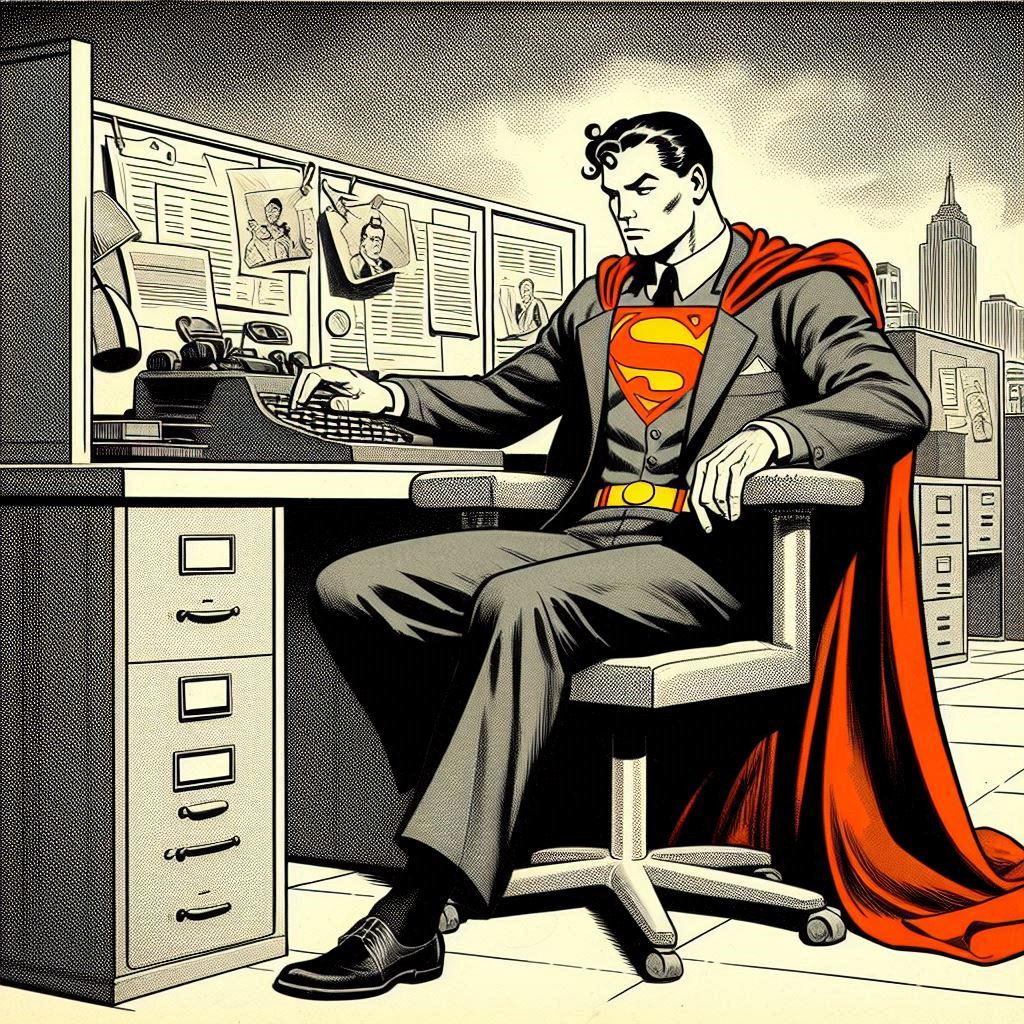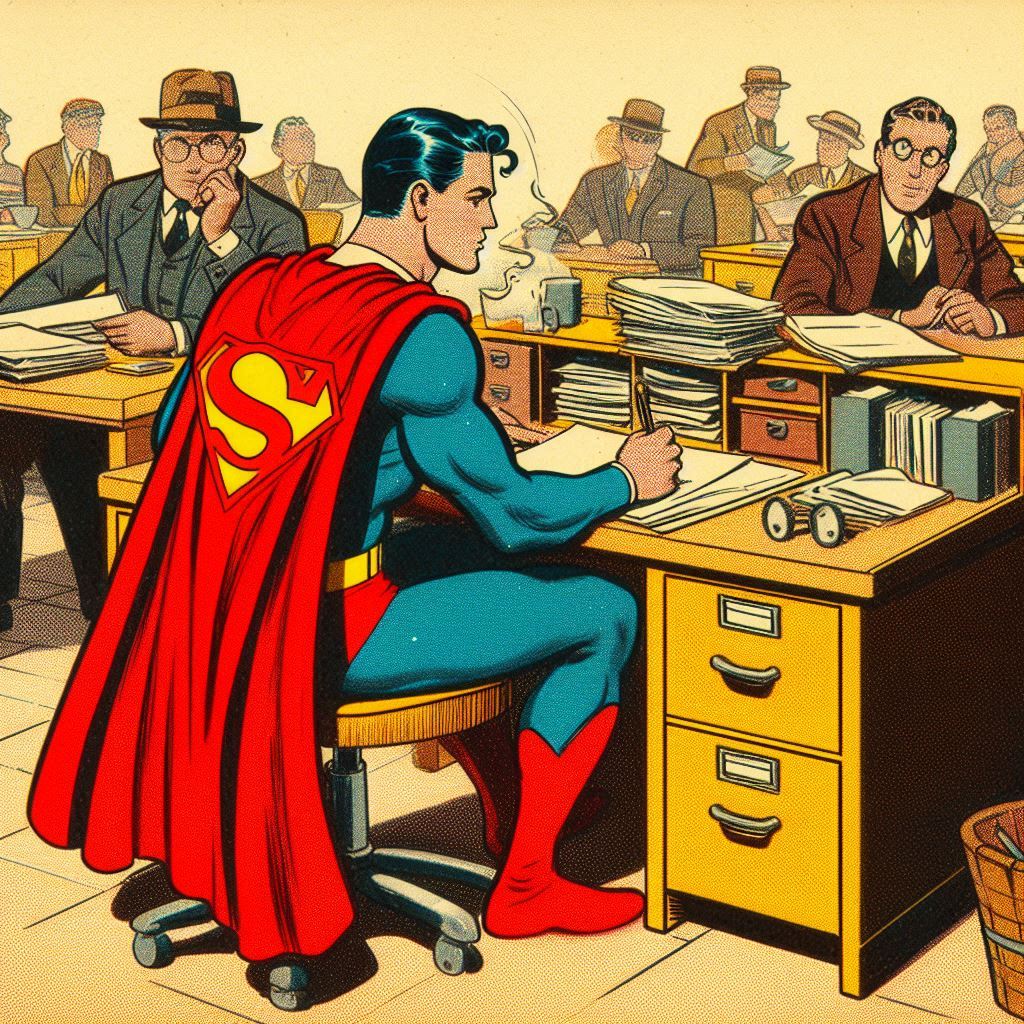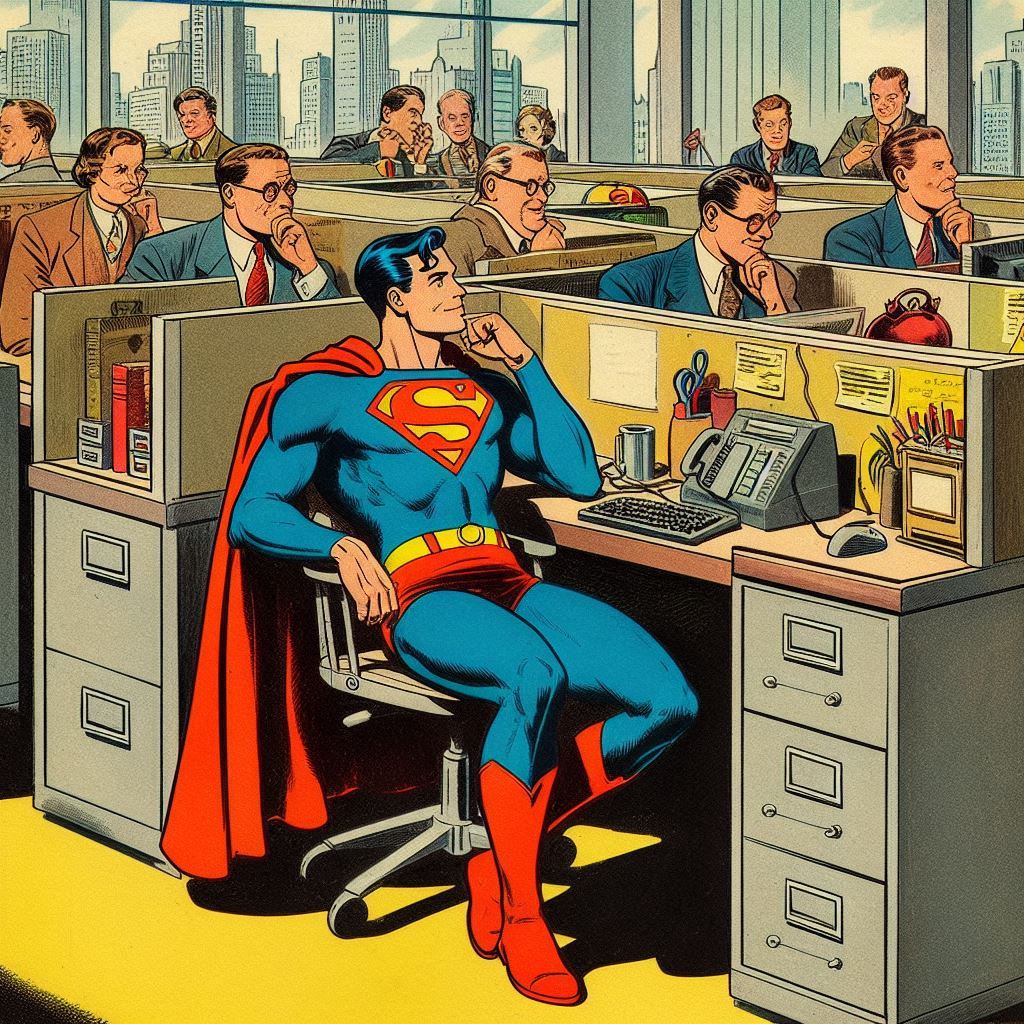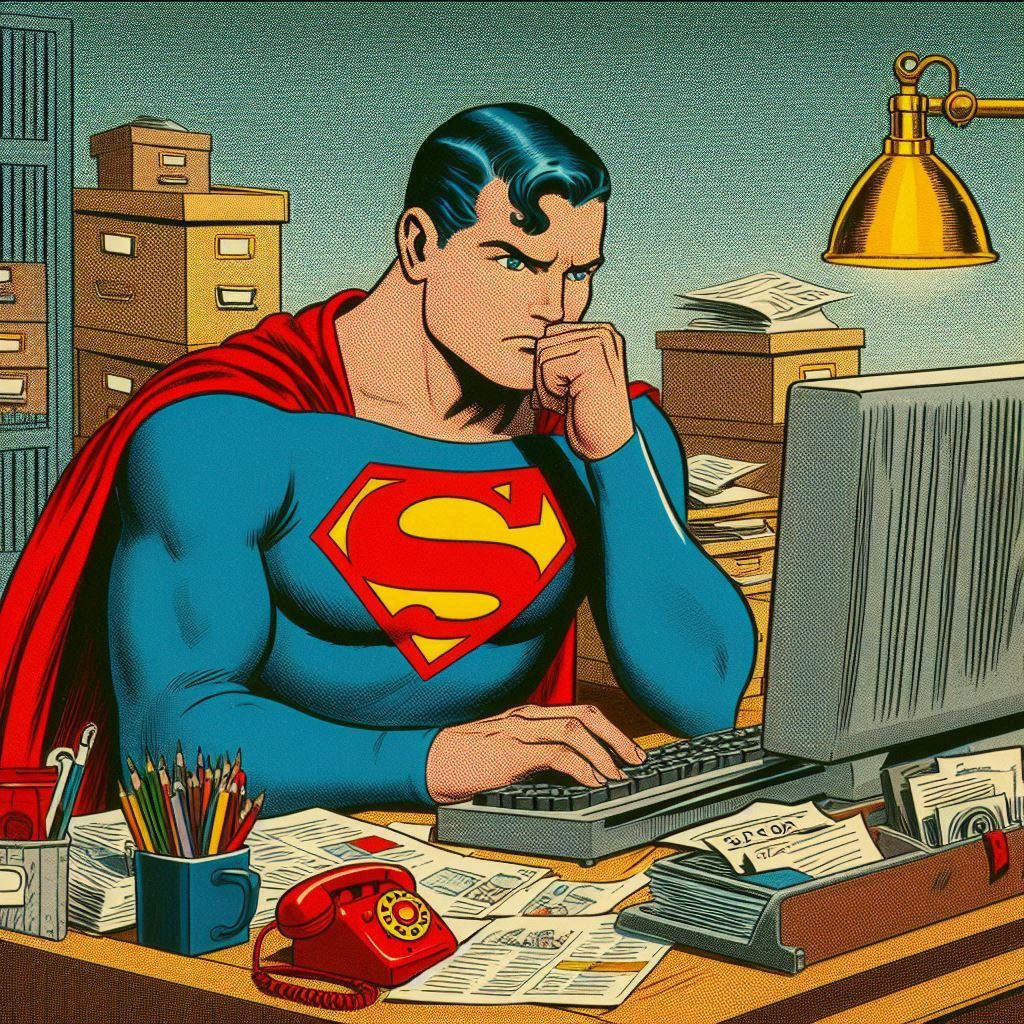It was a bright Monday morning in Metropolis, but there was no cape in sight—at least not for Superman. As strange as it seemed, Clark Kent, aka the Man of Steel, was seated in a cramped cubicle on the 23rd floor of the Daily Planet building, scribbling notes and typing away at his typewriter. The world knew him as the fearless hero who soared through the sky, saving the city from disaster. But today, Clark Kent was just another desk jockey, his iconic red and blue suit hidden beneath a drab suit and tie.
The year was 1937, and the world was still adjusting to the idea that Superman, a being with the strength to topple buildings and the ability to fly, had chosen to work as a mild-mannered reporter. Clark’s cubicle—nothing more than a gray partition surrounded by stacks of papers—was a stark contrast to the heroic feats he performed nightly. The whir of the typewriter and the clink of the office clock filled the air as coworkers buzzed around him.
Clark’s fellow reporters, like Lois Lane, were all busy with their own work. But none of them suspected that the man who passed them coffee and exchanged pleasantries was the most powerful being on Earth. To them, Clark Kent was just a quiet, unassuming journalist, not the caped crusader who rescued Metropolis from all manner of threats.
“Clark, do you have that story on the new factory opening?” Lois Lane’s voice interrupted his thoughts. She leaned over the low wall of his cubicle, a pencil tucked behind her ear, her eyes sharp and inquisitive as ever.
“Right here,” Clark said, pushing the typed pages across the desk with a half-hearted smile. Lois gave him a quick nod, clearly focused on her own work. He was just another reporter to her—albeit one who always seemed a little too nervous when she was around.
As Lois walked off, Clark let out a sigh. For all his powers, the office was where he found himself the most powerless. The city of Metropolis might have needed Superman to protect it from criminals and supervillains, but Clark Kent was just another cog in the machine. Another man answering to a boss, another employee filling a cubicle, another face in the crowd.
Yet, as much as he hated the monotony, there was something endearing about the daily grind. While the world above him might need Superman to fly high and save the day, in these quiet moments, it was Clark Kent who could make a difference with words. He had his stories to write, his reports to file, and every article he wrote was a small victory—no matter how mundane it might seem compared to his adventures as Superman.
Suddenly, a loud crash from across the room jolted him from his thoughts. A group of reporters gathered around a fallen filing cabinet. Papers were scattered everywhere, and a flustered assistant scrambled to pick them up.
Clark didn’t think twice. With a glance around the office, he ducked beneath the cubicle wall and, in the blink of an eye, he was at the scene. Without anyone noticing, he quickly straightened the cabinet, helped retrieve the papers, and returned to his desk—all in a flash.
He sat back down and adjusted his glasses, looking as though he’d never left. Not a soul had seen him. In a world filled with danger, saving the day in Metropolis often meant dealing with paperwork, broken filing cabinets, and a few awkward glances. It wasn’t the kind of heroism that made the front page, but it was enough.
The rest of the day went on just like any other, with Clark continuing to churn out articles and attend meetings, his secret identity as Superman resting quietly in the back of his mind. As the sun began to set, casting long shadows across the office, Clark felt a familiar tug. He knew it was time to leave the cubicle behind and do what he was truly meant to do.
After finishing one last story, he stood up, grabbed his hat, and walked toward the elevator. He wasn’t in a hurry—he never was. In a few moments, he would slip away, disappear into the night sky, and once again become the hero Metropolis needed. But for now, the cubicle was where he had to be.
And as the elevator doors closed behind him, the city outside ready for another adventure, Superman’s cape fluttered, if only for a moment, in the wind—unseen but always present.
In the world of the 1930s, no one knew that the mild-mannered reporter was more than he seemed. He was a symbol of hope, of strength, and of the everyday heroism that could be found even in the most ordinary of places. And maybe, just maybe, that was what made him truly super.






